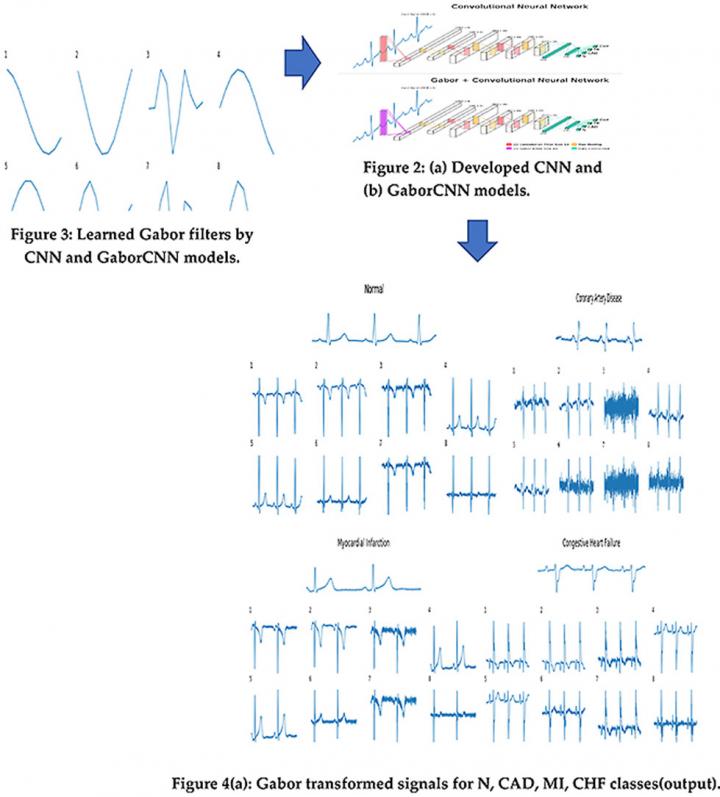A team of researchers from Nanyang Technological University, Singapore (NTU Singapore), Ngee Ann Polytechnic, Singapore (NP), and the National Heart Centre Singapore (NHCS) have invented a tool that could speed up the diagnosis of cardiovascular diseases.
Powered by artificial intelligence (AI), their innovation uses electrocardiograms (ECGs) to diagnose coronary artery disease, myocardial infarction and congestive heart failure to an accuracy of more than 98.5 per cent.
The joint development of the diagnostic tool is timely, as the number of deaths caused by cardiovascular disease in Singapore has increased over the past three years. According to the Singapore Heart Foundation, 29.3 per cent of all deaths in Singapore in 2019, or almost 1 out of 3 deaths in Singapore, was due to heart diseases or stroke.
The scientists hope that their innovation could support the diagnosis of cardiovascular diseases in clinical settings, specifically while physicians carry out preliminary ECGs, ultimately leading to speedier courses of treatment.
The researchers devised the diagnostic tool by using an AI machine learning algorithm called Gabor-Convolutional Neural Network (Gabor-CNN), which mimics the structure and function of the human brain, enabling computers to learn from past experiences like a human. Using the algorithm, they trained their tool to recognise patterns in patients’ ECGs by inputting examples of ECG signals that reflect cardiovascular diseases.
Clinical Associate Professor Tan Ru San, Senior Consultant at the Department of Cardiology, NHCS, who co-authored the study, said: “Our study on a preliminary small group of subjects has demonstrated promising results in terms of the accuracy of using routine ECGs to classify some common cardiovascular conditions. Although confirming the specific disease still requires additional testing, our diagnostic tool will allow physicians to triage patients more efficiently and to streamline the number and type of downstream confirmatory tests.”
Associate Professor Eddie Ng Yin Kwee from NTU’s School of Mechanical and Aerospace Engineering, who co-led the study, said: “Scientists and physicians have been exploring AI techniques to aid in disease diagnosis. Our diagnostic tool is the first to use GaborCNN to allow for ECG signals to be directly entered into the system for analysis, and could lead to advancements in the pursuit of merging AI with medical solutions. Our proposed system is equipped to be validated with bigger database and has the potential to aid the clinicians to screen for cardiovascular diseases using ECGs.”
Dr U Rajendra Acharya, Senior Faculty Member from Ngee Ann Polytechnic’s School of Engineering said: “Our AI diagnostic tool, which was developed using a small public database, can detect coronary artery disease, myocardial infarction and congestive heart failure using ECG signals accurately. It has the potential to aid clinicians in the screening of cardiovascular diseases quickly, speed up the delivery of treatment and reduce costs for patients.”
The study was published in the peer-reviewed scientific journal Computers in Biology and Medicine in May.
Using AI to aid in detecting heart disease
To test their diagnostic tool, the researchers obtained ECG signals from both healthy individuals and patients with prevalent cardiovascular diseases.
In a pilot study, the researchers used the tool to analyse ECG signals from 92 healthy individuals, as well as seven patients with coronary artery disease, 148 patients with myocardial infarction and 15 patients with congestive heart failure.
Clin Assoc Prof Tan added: “Our AI-enhanced tool could automatically identify ECG signals associated with healthy people and patients with the different cardiovascular diseases with an accuracy of more than 98.5 per cent. Heart disease is a leading cause of death worldwide, and affects not only the heart but other major parts of the body. Early detection prevents complications such as heart failure, stroke, kidney disease and artery disease.”
Elaborating on the role of AI in disease detection, Assoc Prof Ng added: “AI techniques have the potential to radically improve healthcare solutions, especially in data analysis, offering clinicians novel tools to interpret data and make clinical decisions. AI techniques such as machine learning and deep learning can also improve medical knowledge due to the increase of the volume and complexity of the data, unlocking clinically relevant information.”
The team will be working with local hospitals to conduct further trials to validate the clinical use of their new diagnostic AI tool with a larger database of patients. They hope it can be used to complement current techniques of diagnosing cardiovascular diseases such as magnetic resonance imaging (MRI) and coronary angiography.
###
Media Contact
Joseph Gan
[email protected]
Original Source
https:/
Related Journal Article
http://dx.





